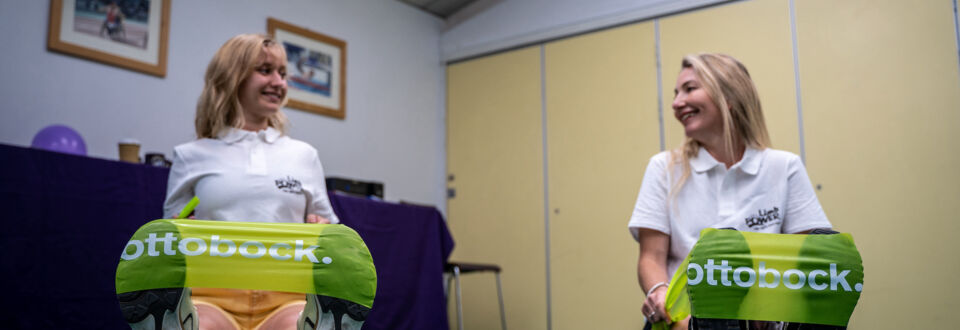Why Exercise?
Why is exercise, physical activity and sport important to disabled people?
Physical activity is essential for keeping you strong and healthy. The less active you are, the more likely you will be to put on weight and put your health at risk. The more you do, the stronger you’ll become. You’re much more likely to feel better and live longer as a result.
As well as helping you keep an eye on your waistline, exercise can also be a great boost for your mood, energy and self-confidence. It’s also a great way to get out and meet new people doing the same thing.
Activity isn’t just about becoming physically stronger. It can also help improve your coordination, balance, agility, concentration, stamina, speed and reaction times, by using different parts of your brain. It can help to reduce stress, and you may sleep better too.
Sport and physical activity has so many positive benefits for all people, but for those with an amputation it includes:
• Maintaining a healthy and stable weight. Gaining or losing weight has a major impact on prosthetic fitting.
• For non-vascular amputees exercise(s) is a preventative treatment to reduce the risk of developing diabetes and cardiovascular disease. A healthy well balanced diet is also important for the prevention of diabetes.
• Exercises for amputees with vascular disease is a preventative treatment against the ongoing process of Type 2 diabetes and vascular disease. For amputees with vascular disease, exercise can reduce symptoms of PVD such as breathlessness, angina and intermittent claudication pain often felt during walking. By improving blood circulation through exercises, type 2 diabetes can be better controlled.
• Good nutrition and regular exercise have a positive effect on the skeletal system, and help prevent osteoporosis.
• Overcoming Depression - Amputation can have a number of negative psychological effects, including depression. Exercising releases neurotransmitters and endorphins, which create feelings of happiness and elation.
Please note:
Before embarking on exercise or physical activity seek advice from your G.P., Rehabilitation Consultant or healthcare providers such as your physiotherapist and prosthetist.
There is a misconception that you need a sport-specific prosthetic (blade) to exercise. You do not, if you are a below knee amputee your everyday limb will cope with most things. This is more complex for above knee amputees but there are many sports and exercises that have been adapted which you can take part in. When starting any form of exercise the every day leg will likely be sufficient, however some knees may not be as effective at performing certain activities. Once you have increased your fitness and competence you might find that you need a sport specific limb. We suggest you discuss any needs and changes in activity with your rehabilitation consultant and prosthetist, who can advise if an alternative prescription might be advantageous.

